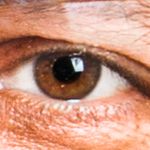 Adobe Community
Adobe Community
Copy link to clipboard
Copied
I have determined the issue with the help of a specialist.
Dear Adobe. What is a level of Acceptable "Pixelation" at what percentage magnification? All images have some pixelation at some level. Does it need to be 200% with no pixelation?
Please update quidelines on "interpolation" and "pixelation" so that we can avoid this in submission.
 2 Correct answers
2 Correct answers
Hi SC_TV,
The forums are monitored by photographers, and rarely Adobe staff. The photos you take should not be excessively modified. You should not be changing its size. https://helpx.adobe.com/support/stock-contributor.html is the guidelines we use. You will also find the info at https://helpx.adobe.com/stock/how-to/tips-stock-image-acceptance.html?set=stock--fundamentals--adobe-stock-contributor useful.
We can better help you if you upload copy of one or more of the images rejected and sta
...Interpolation happens when RAW files are processed. That is not to avoid, except with Faveon captors. Other interpolation happens when upscaling or downscaling pictures. Upscaling is an absolute no go, downscaling should be avoided, except if your camera sensor produces pictures with a resolution higher than what Adobe stock allows. Only a couple of cameras are in this situation.
I suppose that with pixelation you mean artifacts that show up when there is excessive processing, either by in ca
...Copy link to clipboard
Copied
Hi SC_TV,
The forums are monitored by photographers, and rarely Adobe staff. The photos you take should not be excessively modified. You should not be changing its size. https://helpx.adobe.com/support/stock-contributor.html is the guidelines we use. You will also find the info at https://helpx.adobe.com/stock/how-to/tips-stock-image-acceptance.html?set=stock--fundamentals--adobe... useful.
We can better help you if you upload copy of one or more of the images rejected and state the rejection reason so that we can assist you from an Adobe standpoint.
Best wishes
JG
Copy link to clipboard
Copied
Never been a member.
Copy link to clipboard
Copied
Your answer does not make sense. Please describe your problem, if you have one.
Copy link to clipboard
Copied
Interpolation happens when RAW files are processed. That is not to avoid, except with Faveon captors. Other interpolation happens when upscaling or downscaling pictures. Upscaling is an absolute no go, downscaling should be avoided, except if your camera sensor produces pictures with a resolution higher than what Adobe stock allows. Only a couple of cameras are in this situation.
I suppose that with pixelation you mean artifacts that show up when there is excessive processing, either by in camera processing or by raw to jpeg conversion. This happens especially when taking pictures during less than optimal situations (low light for example) or with a very small sensor. Worse is a very small sensor and low light...
To detect those artifacts when they are not that obvious, you examine your pictures at a 200% magnification. This is for optical checking of your pictures. If you see defects, the picture is not acceptable.
But please be aware that there are also other image defects like a bad histogram or wrong white balance.


